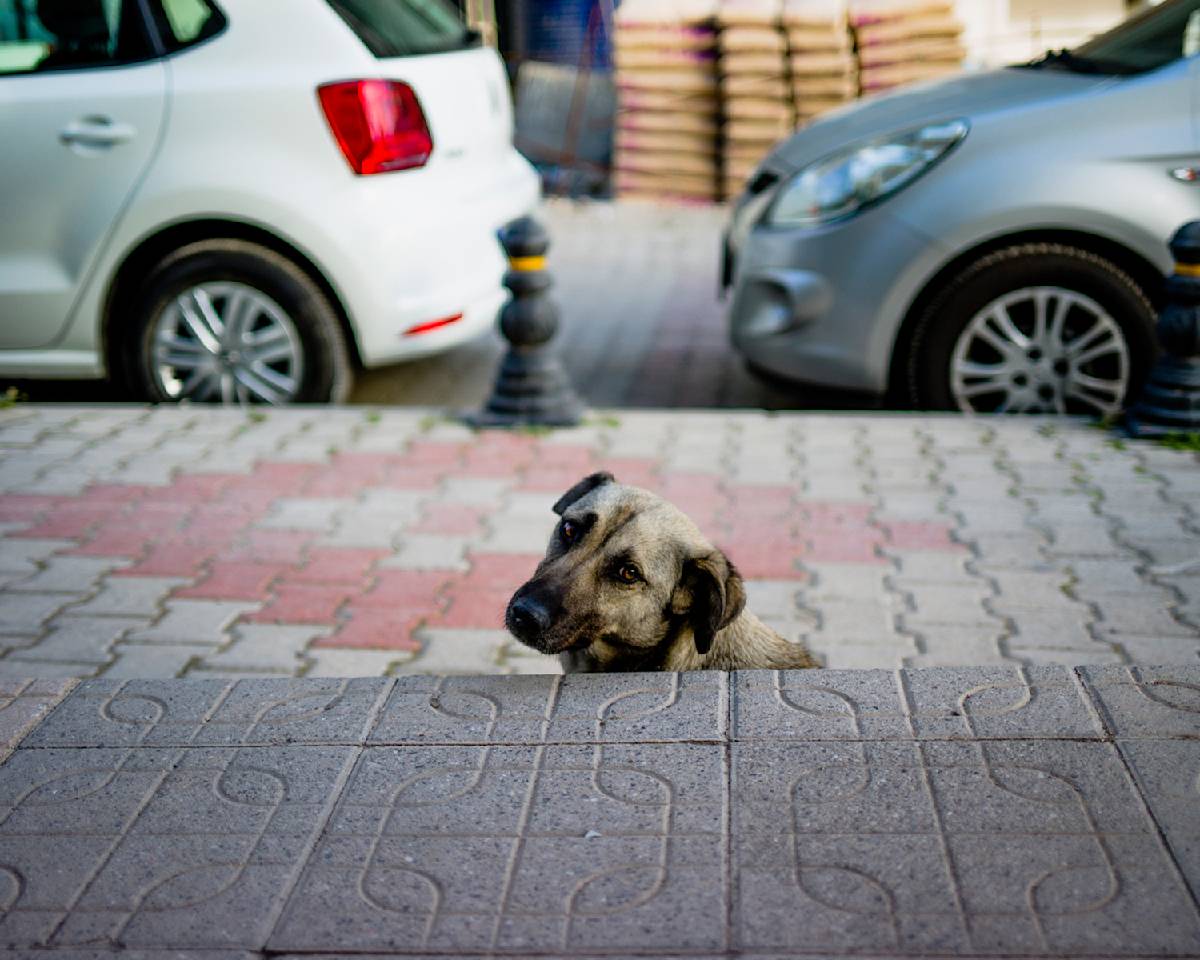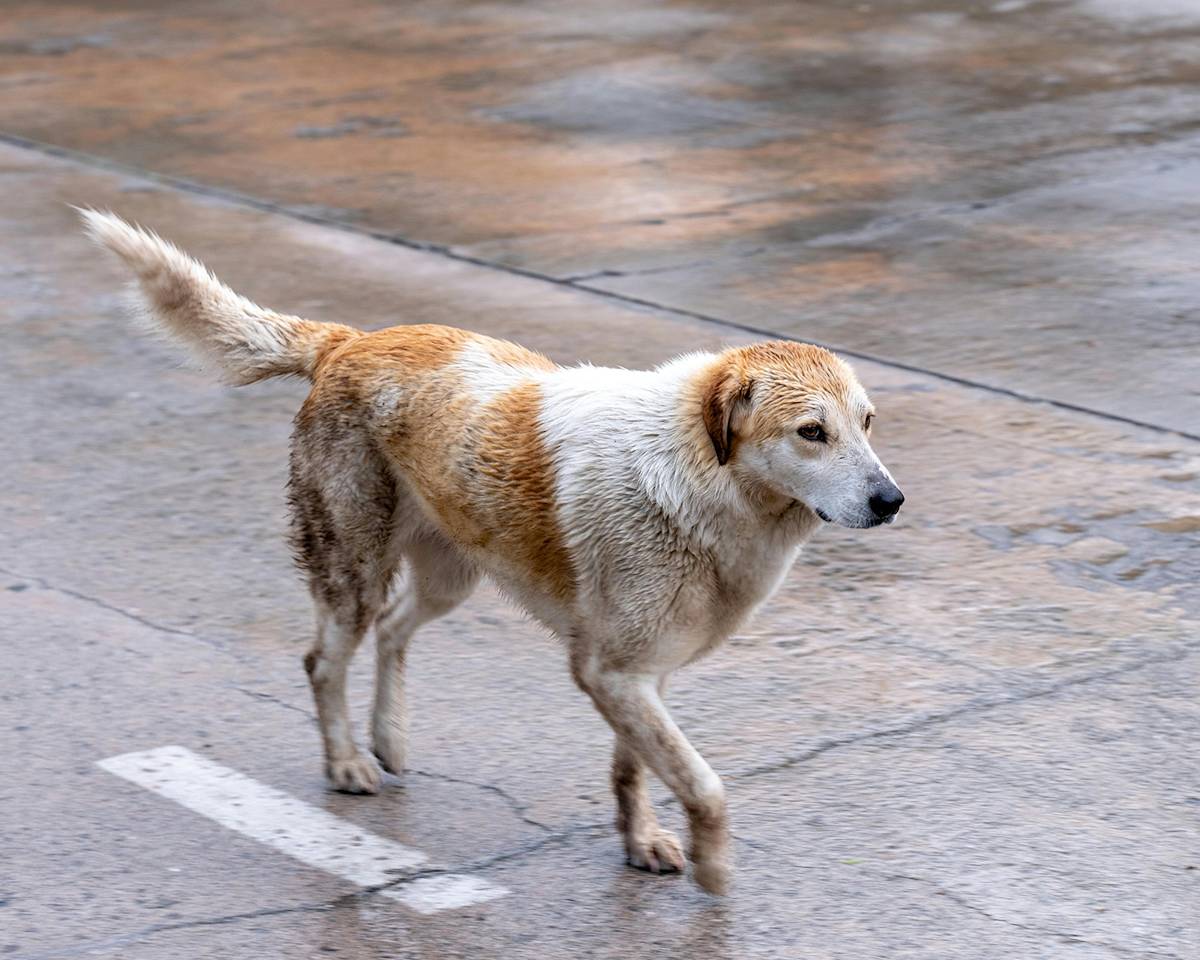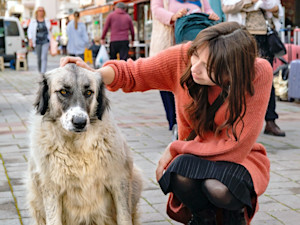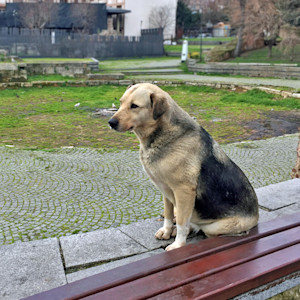Turkey’s Dog Massacre Law, One Year On
A new law promised control – but for Turkey’s stray dogs, the reality is far darker

Share Article
Trigger warning: this article contains descriptions of animal abuse and neglect.
Last summer, Turkish lawmakers pushed through a 17-article bill they claimed would manage the stray dog population in the country. Statsopens in new tab claimed that stray dogs had contributed to 55 deaths, more than 5,000 injuries, and 3,500 traffic accidents.
Going on to be written into law later in the summer of 2024, it was dubbed the ‘massacre law’, mandating municipalities in Turkey collect stray dogs (of which there are an estimated four million), and house them in government-run shelters where they should be neutered and spayed. Dogs who are terminally ill, pose a health risk to humans, or are considered ‘aggressive’ would be euthanised.
Even before the bill became law, and most certainly once it had, animal rights activists rallied against it, fearful the legislation would lead to dogs being rounded up and killed (because there was not space for them in shelters), or brought into overcrowded shelters, where they would become malnourished or ill, and die.
Also included in the legislation are threats of penalties, and even imprisonment, for mayors who fail to carry out the provisions in the law.
At the time, the main opposition Republican People’s Party (or CHP), saidopens in new tab it would seek the cancellation of the law.
“You have made a law that is morally, conscientiously and legally broken,” Murat Emir, a senior deputy with the CHP, saidopens in new tab. “You cannot wash your hands of blood.”
Will the law be overturned?
In May, the CHP followed through with their promise and submitted an application to the Constitutional Court of Turkey to end the law.
“We had hoped the ruling would be overturned, because the law does nothing to address the root causes of the crisis – lack of spay and neuter programmes, irresponsible pet ownership and inadequate shelter conditions,” says Dilan Gul, founder of Holly & Oli Rescueopens in new tab, an animal rescue foundation partnering with dog rescuer Mehlika Zerener, in Istanbul. “Instead, the government continues to enforce measures that are not solution-based.”
The appeal application was rejected unanimously by the court, ruling that the provisions in the law are legally validopens in new tab, and that it should continue to be implemented.
“Animal activists are still trying to push for change, but unfortunately the country just has bigger things to worry about at the moment,” says Lisanne Hillen, an animal rescuer who manages Melez Dog Rescueopens in new tab, linked to Animal Friends of Turkey, in the west of the country. “Since the law has gone into effect, Turkey has had major turmoil politically, especially over the past months. Turkey’s constitution and democracy are now under such threat, that there is no room left on the agenda for animal rights.”
What is the state of government shelters?
“The government shelters are hugely over capacity, and kennels that were built for four to five dogs hold 15 plus dogs,“ says Hillen. “Many of the dogs we are saving from the government shelters are hugely malnourished because there isn't enough food for the dogs, and the kennels are so full, with no supervision during feeding, that the weaker dogs just go without food most of the time. The harsh truth is that the municipalities don’t have to actively cull the dogs, as so many are dying in the shelters from hunger or disease anyway.”
It had been the fear all along – with roughly only 90,000 spaces for strays in shelters, and at least four million stray dogs, how would shelters be able to follow the law while treating dogs humanely?
“The so-called shelters are like death camps, overcrowded more than ever, the dogs are dying there due to starvation and neglect,” says Sibel Akin, president of Pets in Turkeyopens in new tab. “Getting a dog out of a shelter is also more difficult now.”
Akin says shelters have “invented” new rules prohibiting the adoption of more than one dog, and require the adopting pet parent to be a resident of the region.
Which municipalities are enforcing the new law?
Although the provisions in the law indicate that municipalities would have until 2028 to build or improve animal shelters to hold strays, there was a fresh message sent by the Agriculture and Forestry Ministry in February, stating the legal requirement to round of strays and place them into shelters came into effect when the law was enacted.
“Waiting until 2028 to collect stray animals would constitute a violation of the law,” the statementopens in new tab read.
It’s difficult to know which municipalities are actually enforcing the new law due to lack of transparencyopens in new tab.
In February 2025, The Animal Rights Monitoring Committee and Yaşamdan Yana Association released a reportopens in new tab on the state of municipal animal shelters across Turkey to check in on how the law was being implemented.
Out of 1,408 municipalities, only 1,111 respondedopens in new tab, indicating a lack of transparency. Findings indicate that only 273 municipalities have shelters, with at least 26 operating without a licence; 838 municipalities either confirmed they lacked shelters or refused to provide information on the subject.
There have since been multiple warnings given to municipalities that don’t comply with the law.
The Agriculture and Forestry Ministry instructedopens in new tab all provinces to ensure municipalities immediately collect stray animals from the streets, warning of financial penalties for non-compliance.
And after the death of a toddleropens in new tab by a pack of stray dogs in Konya in March, Turkey’s interior minister pledged to fully apply the law to remove millions of stray dogs from the streets.
“Either they will do this job or I will use whatever authority the law gives me to the fullest,” Interior Minister Ali Yerlikaya saidopens in new tab in a video message posted on social media.
Istanbul Governor’s Office urged local municipalities to immediately collect strays as the new school year started, sayingopens in new tab packs of them posed “threats to citizen’s safety.”
Is the law working to reduce the number of stray dogs?
Hillen says that the impact of the law looks different depending on the region. Some streets are empty of dogs, others are full of them.
“The rounding up of street dogs continues on a huge scale, but the shelters are so full that it is impossible for all dogs to be taken off the streets,” says Hillen.
Akin says the dogs who are still on the streets face danger at the hands of “sick-minded people” who have been “beating dogs to death, running them over by their cars, torturing them or poisoning them” because they don’t feel they risk punishment now that the law has once again been reaffirmed.
How are activists responding?
After having proposed countless alternative solutions that are both humane and effective, activists for Turkey’s dogs are feeling “ignored”, says Gul.
“Unfortunately, our concerns aren’t being acknowledged by the authorities,” Gul continues. “Still, the community of animal lovers hasn’t stopped fighting – whether through petitions, local care, or simply keeping strays fed and safe wherever possible.”
Akin is “tired and frustrated”, hearing horrible news from the shelters every day. “We would like to help them all, but it is humanly impossible.”
Animal rights activists, despite their exhaustion and disappointment, aren’t giving up.
“Animal rights activists are working locally to try to either put pressure on government shelters and municipalities to make sure they know that people are trying to hold them accountable,” says Hillen. “Or they are trying to build friendly relationships with the government shelters to try to encourage working together to make sure the most vulnerable dogs are helped.”
What can I do to help?
According to Hillen, the only thing that people can do to support Turkey’s stray dogs is to support local rescuers who are trying to save dogs from government shelters before “it’s too late”.
“International adoption is one of the major ways to achieve this,” she says. “One dog adopted means another dog can be rescued before they pass away in the overcrowded government shelters.”
To join in the fight you can share images and videos on social mediaopens in new tab – especially those with info written in languages other than Turkish – to help generate a global awareness. If you’re able to, you can also donate money to charities such as Animal Friends of Turkeyopens in new tab or HAYTAPopens in new tab.
The only thing that keeps Gul going is “knowing every single life saved matters”.
“Even in the darkest times, there are people who care deeply and refuse to give up on these animals,” Gul concludes. “My biggest fear is that cruelty will continue unchecked, but my greatest hope is that love and compassion will prove stronger in the end.”

Lauren Crosby Medlicott
Lauren is a freelance journalist who lives with her family and black labrador, Betsie, in the south Wales valleys. When she’s not working, she loves going for a dip in a nearby river and hiking in the Brecon Beacons.
Related articles
![girl in a yellow top and baseball cap hugs a big fluffy white dog on a beach]()
Is It More Ethical to Adopt a Dog From Overseas Or From the UK?
You’ve chosen to adopt a dog, congratulations! But with dogs in need both here and abroad, which route should you take?
![a woman with brown hair and an orange crouches down to stroke a large stray dog]()
Adoption Requests In Turkey Rise After ‘Massacre’ Law, But Is it Enough to Help?
Activists from Turkish rescue centres tell us how you can support them in their most desperate hour
![]()
Where to Donate Dog Items and Money in 2026
Turn spare toys into shelter support
![puppy lying in a dog crate with blanket]()
How Much Does It Cost to Import a Dog to the UK?
A complete breakdown of fees, documentation and transport costs
![Woman hugging a dog]()
How Temporary Dog Fostering Works In the UK
Everything you need to know about fostering dogs in the UK
![a large dog sits somberly on a bench in a town square]()
Here’s What’s Been Happening To Turkey’s Stray Dogs Since The ‘Massacre’ Law Passed
It’s been nearly a month since Turkey passed the ‘massacre’ law that many feared would lead to a mass culling of the country’s beloved street dogs – here’s what’s been happening since








